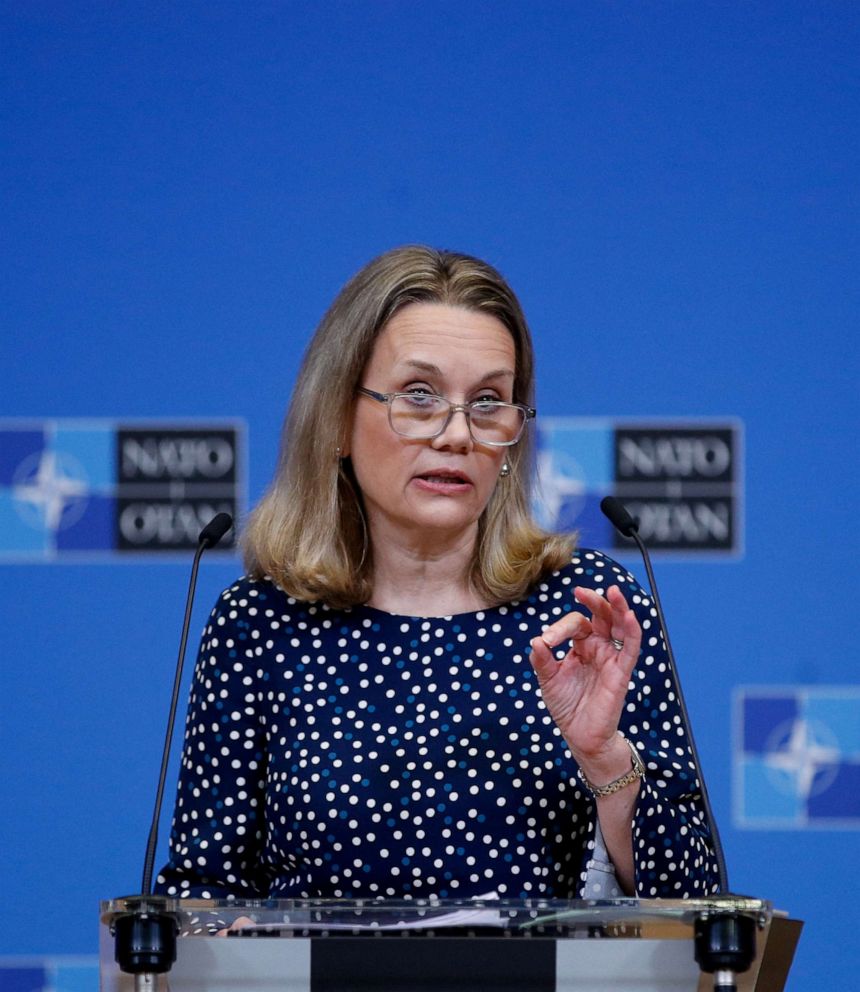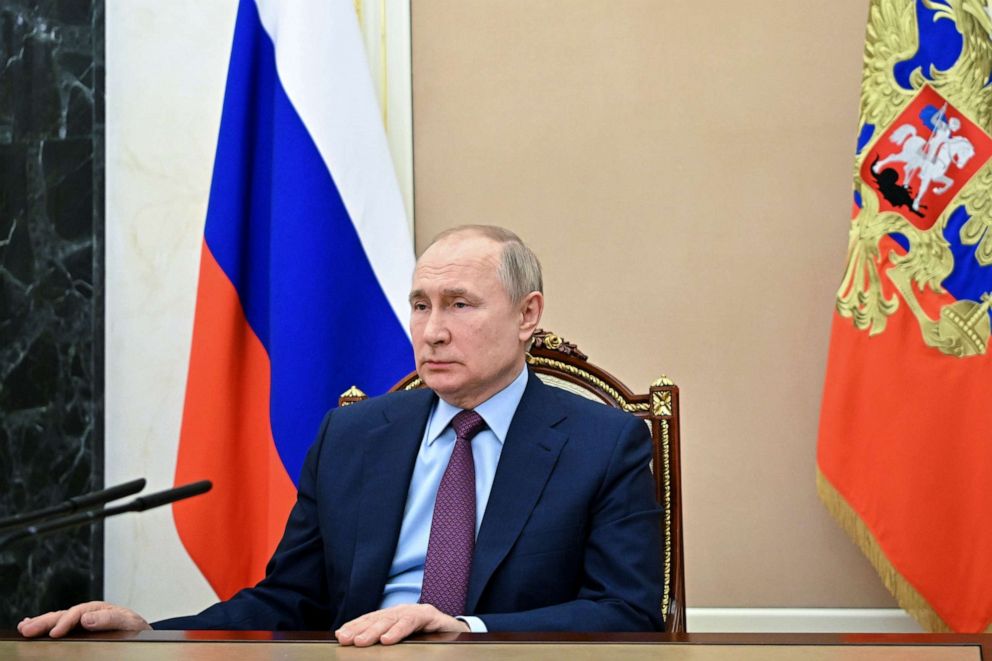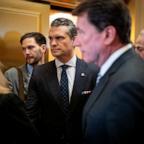US assessing Russia's claim of withdrawing some troops
The United States is assessing Russia's claim that it is withdrawing some troops from Ukraine's borders, U.S. Ambassador to NATO Julianne Smith said Tuesday.
During a press briefing at NATO headquarters in Brussels, Smith cast some doubt on the claim after Russia made similar statements in late December.
"All I can say is we'll have to verify that and take a look," Smith told reporters. "We want to make sure we understand what they're talking about when they say de-escalation, and we want to verify that that is in fact what's happening. So stand by, we'll obviously take a look at that."
When asked again whether some Russian forces were in fact pulling back, Smith reiterated: "I can't say yes or no. I can't say really anything about it at this moment because this is something that we'll have to look at closely and verify in the days ahead."

NATO's defense ministers, including U.S. Secretary of Defense Lloyd Austin, will meet Wednesday to discuss deployments within the military alliance and a "variety of contingencies," according to Smith, who noted that NATO "will continue to determine whether or not additional enhancements might be necessary."
While any Russian troop withdrawals could be a sign of de-escalation, the law passed Tuesday in Russia's parliament calling on President Vladimir Putin to recognize Russian-controlled breakaway regions in eastern Ukraine as independent would be a "new shift in the escalation," Smith said, adding that the U.S. and NATO "would monitor that very closely" and determine its response.
"If they proceed with this, then I think it's a clear violation of Ukraine's territorial integrity and its sovereignty, and it's also a violation of the Minsk agreement," she told reporters, "and so that would obviously be a new shift in the escalation."
As the U.S. and NATO await Russia's written proposals on issues like arms control and military exercises, Smith again called on Russia to engage meaningfully in talks.
"Look, we can spend the rest of the year going back and forth exchanging letters," she said, "but really what's important is the best way to proceed would be for us to sit down at the table again."
Until then, Smith said they do not know what Putin will decide.
"We do not understand fundamentally -- none of us do -- what is inside President Putin's head," she added, "and so we cannot make any guess about where all of this is headed."
-ABC News' Conor Finnegan






